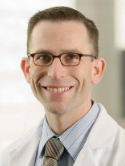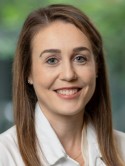Declining commercial market share in facial reconstructive surgery: Implications for academic plastic surgery and training future generations Journal Article
| Authors: | Rochlin, D. H.; Matros, E.; Sheckter, C. C. |
| Article Title: | Declining commercial market share in facial reconstructive surgery: Implications for academic plastic surgery and training future generations |
| Abstract: | Background: As a surgical discipline without anatomic boundaries, plastic surgery overlaps with several other specialties. This study aims to measure longitudinal trends in the proportion of commercially reimbursed procedures performed by plastic surgeons compared to other specialists. We hypothesize that there is encroachment in commercial market share by anatomically defined subspecialists within otolaryngology, ophthalmology, and dermatology. Methods: The IBM® MarketScan® Research Databases were queried to extract patients who underwent rhinoplasty, eyelid procedures, and skin cancer reconstruction covered by commercial insurance from 2007 to 2016 in the USA. Surgeon specialty was identified. Poisson regression modeled predictors of provider specialty for each procedure over time, adjusting for patient gender, region, facility setting, and diagnosis. Results: A total of 430,472 rhinoplasty, eyelid, and skin cancer procedures were performed during the study period. For each year, the proportion of cases performed by plastic surgeons decreased by 2.1% for rhinoplasty compared to otolaryngologists, 2.0% for eyelid procedures compared to ophthalmologists, and 3.0% for skin cancer reconstruction compared to dermatologists (p<0.001). Plastic surgeons were less likely to perform the procedure if the underlying diagnosis or preceding procedure drew from referral bases of “anatomic” specialists, such as sinonasal disease for otolaryngologists (incidence rate ratio [IRR] 0.829), disorders of the eyelid or orbit for ophthalmologists (IRR 0.646), and Mohs excision for dermatologists (IRR 0.381) (p<0.001). Conclusions: Plastic surgeons are losing ground on commercially reimbursed facial reconstructive procedures historically performed by the specialty. Plastic surgeons must develop strategies to preserve the commercial market share of these procedures and avoid compromise to academic centers and resident education. © 2022 British Association of Plastic, Reconstructive and Aesthetic Surgeons |
| Keywords: | adult; reconstructive surgical procedures; major clinical study; plastic surgery; skin neoplasms; skin cancer; retrospective study; reimbursement; skin tumor; medical education; education; dermatology; eyelid reconstruction; rhinoplasty; surgery, plastic; skin surgery; longitudinal study; ophthalmology; resident education; dermatologist; maxillofacial surgery; otorhinolaryngology; otolaryngology; reconstructive surgery; plastic surgeon; social responsibility; humans; human; male; female; article; ophthalmologist; eyelid procedures; gatekeeper effect; skin cancer reconstruction; subspecialty creep; otolaryngologist |
| Journal Title: | Journal of Plastic Reconstructive and Aesthetic Surgery |
| Volume: | 75 |
| Issue: | 12 |
| ISSN: | 1748-6815 |
| Publisher: | Elsevier Science, Inc. |
| Date Published: | 2022-12-01 |
| Start Page: | 4484 |
| End Page: | 4493 |
| Language: | English |
| DOI: | 10.1016/j.bjps.2022.08.071 |
| PUBMED: | 36241505 |
| PROVIDER: | scopus |
| PMCID: | PMC9669143 |
| DOI/URL: | |
| Notes: | Article -- Export Date: 1 December 2022 -- Source: Scopus |
Altmetric
Citation Impact
BMJ Impact Analytics
Related MSK Work





